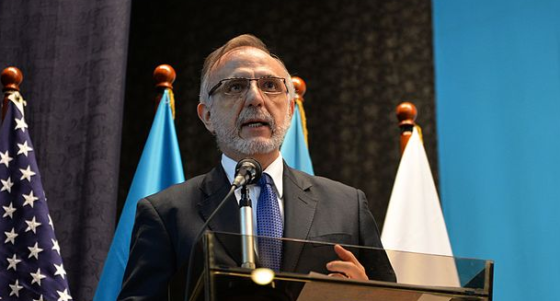
Will Guatemala’s Stalemate Over CICIG Continue?
Guatemalan President Jimmy Morales has banned the entry of CICIG’s chief and refused to renew the agency’s mandate. What’s next?
Colombia | Director, Citizen Security Program, Washington Office on Latin America (WOLA)
˙
Adriana Beltrán is the director of the Washington Office on Latin America’s (WOLA) Citizen Security Program, focusing on violence prevention, and police and judicial reform in Central America. In addition to her work on citizen security, Beltrán has worked extensively on human rights and organized crime, particularly in Guatemala. She is the co-author of the ground-breaking study Hidden Powers, which documents the rise and impact of clandestine criminal organizations in Guatemala following the 1996 Peace Accords.
Beltrán was a long-time advocate for the establishment of a UN-sponsored commission to investigate and prosecute organized criminal networks – an effort that culminated in the creation of the International Commission against Impunity in Guatemala (CICIG) in January 2008. She continues to be actively engaged in ensuring local and international support for the CICIG’s fight against organized crime and institutional corruption. In an effort to address the ongoing surge of crime and violence in Central America, Beltrán is managing a project to facilitate greater coordination of citizen security programs that are funded by the international community. This work, conducted in partnership with the Inter-American Development Bank (IDB), is the first of its kind in Central America. She also monitors US security assistance to Central America through the Central America Regional Security Initiative (CARSI).
Before joining WOLA in 1998, she interned at the United Nations High Commissioner for Refugees. Beltrán was born and raised in Colombia.
Beltrán was an event speaker at the Dialogue.
Guatemalan President Jimmy Morales has banned the entry of CICIG’s chief and refused to renew the agency’s mandate. What’s next?